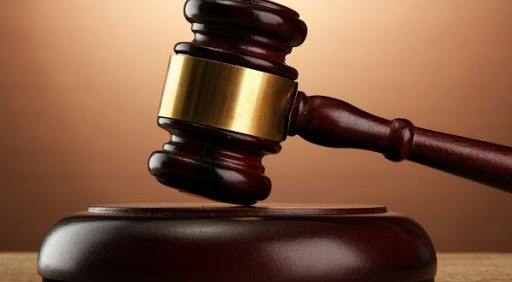

Five of the seven suspects charged with the murder of Kabete MP George Muchai in February 2015, have asked the High Court to find that they have no case to answer and accordingly acquit them.
Their pleas are contained in submissions they made to the court following the close of the prosecution’s case.
The seven accused are Eric Muyera Isabwa alias chairman, Raphael Kimani alias Kim Butcher, Mustapha Kimani alias Musto, Stephen Astiva alias Chokore, Jane Wanjiru alias Shiro, Margaret Njeri and Simon Wambugu.
They were all charged with the murder of then Kabete MP George Muchai, his two bodyguards Samuel Kailikia and Samuel Matanta and his driver Stephen Wambugu.
They were shot dead on the morning of February 7, 2015, along Kenyatta Avenue in Nairobi’s central business district.
In his testimony, Government pathologist Johansen Oduor told trial judge Kanyi Kimondo that Muchai was killed by gangsters using a high velocity weapon. Oduor was the prosecution’s 35th witness.
The state has since closed its case after presenting 37 witnesses.
Justice Kimondo had directed the parties to make their final submissions before he rules on whether the accused have a case to answer.
During a mention on Wednesday to confirm compliance, the court confirmed having received the written submissions from the parties except from Astiva and Njeri whose lawyer said they would not file any submissions.
In their submissions, the other five suspects have sought to be acquitted saying the prosecution has failed to link them to the murder.
Mustapha Kimani who is the third suspect through his lawyer Stephen Ongaro said the prosecution’s case cannot stand, citing inconsistencies from the evidence presented.
Ongaro said while the victims had bullet exit wounds, there were no corresponding bullet exit holes on the vehicle in which they were shot. The lawyer questioned the fact that there were no corresponding holes on the body of the vehicle yet the shots were fired from a high-velocity gun at close range.
Ongaro argued that it did not make sense that no bullets were recovered from the vehicle. He said the claim that the gunshots were discharged from a close range was not proved.
“There is no evidence of murder at the time, place and manner stated and it is my submission that the third accused merits an acquittal at this stage of the trial,” Ongaro said.
The other accused persons chose not to highlight their submissions.
Justice Kimondo will rule whether the accused have a case to answer or not on September 23, 2025.
In his testimony, Assistant Superintendent of police Stephen Mwangi who closed the prosecution testimonies in April, uncovered the extensive web of communication between the seven accused persons before and after the brutal murder of Muchai.
Mwangi revealed that the accused had been in constant contact, with some exchanging over 150 phone calls during the crucial days leading up to and following Muchai's killing.
Mwangi presented a detailed communication analysis matrix illustrating the intricate partners of phone calls exchanged between the accused from February 1 to February 10, 2015.
The report, which was produced as an exhibit before the court, painted a stark picture of the conspiracy that may have culminated in Muchai's assassination.
Mwangi, who oversees communication analysis and data integration, explained that he extracted data from the mobile number of the seven accused persons.
He highlighted a key connection between Raphael and Asitiva, who exchanged phone calls 100 times before, during and after Muchai's death.
The analysis also revealed that Wanjiru, the fifth accused, had engaged in 150 phone calls with the third accused, Asitiva.











